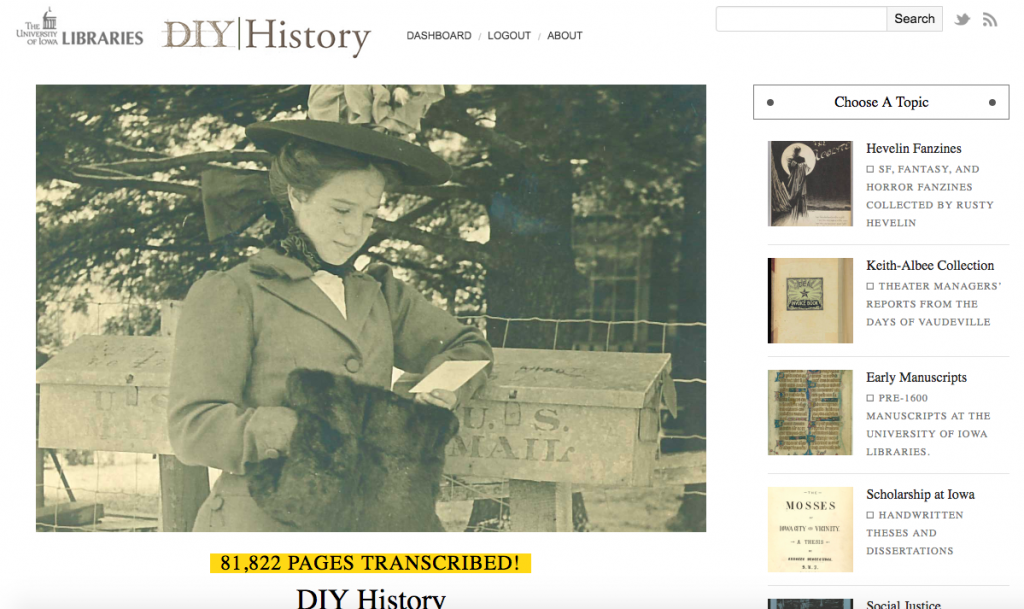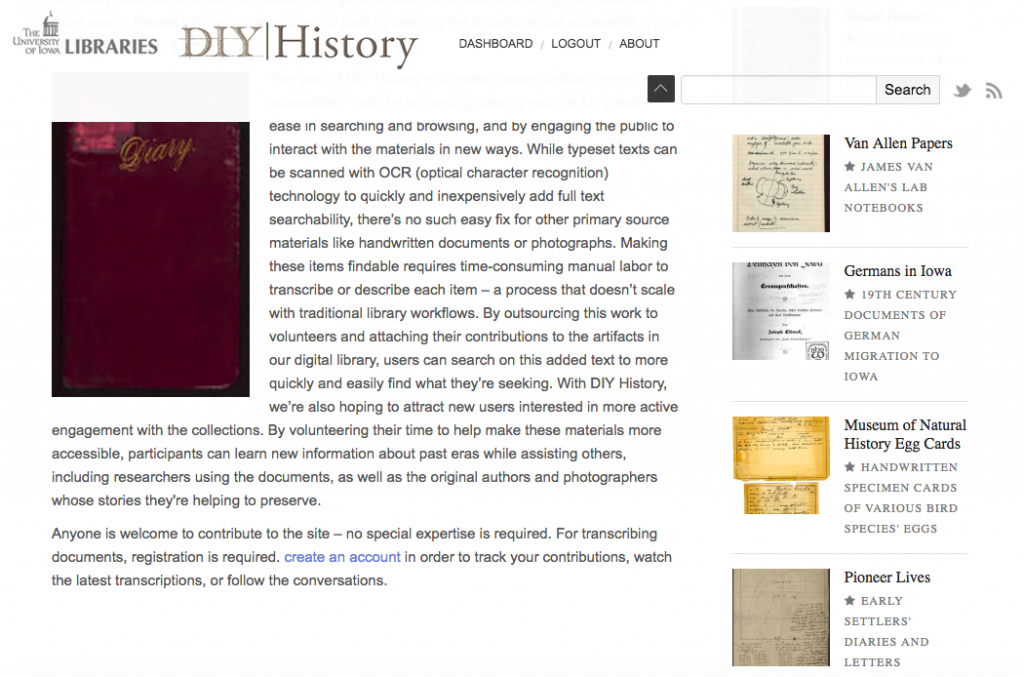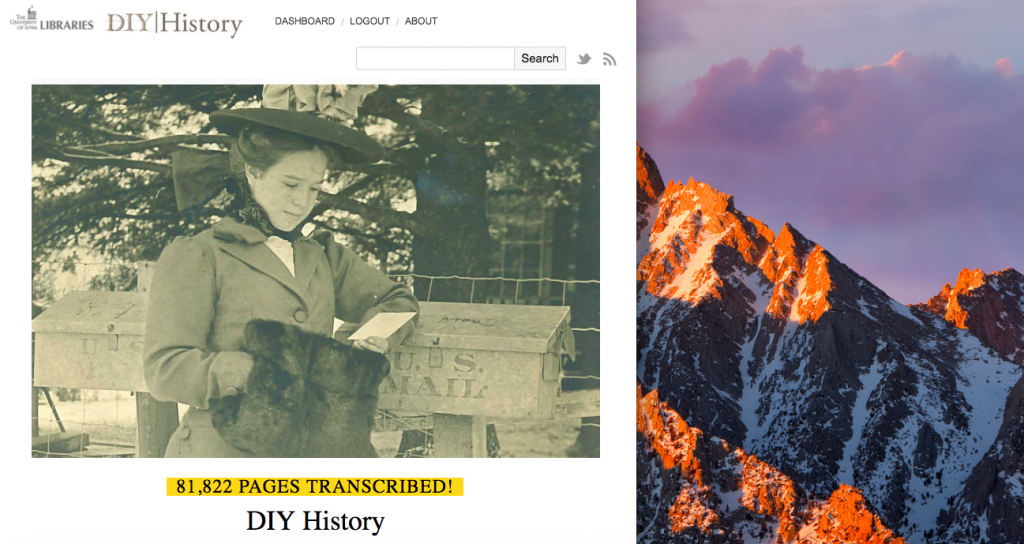DIY History Accessibility Review
The University of Iowa's website welcomes users of all levels of accessibility, asserting that "no special expertise is required." In my opinion, this statement is not entirely true, though the University of Iowa's crowd-source transcription website, DIY History, holds a number of positive qualities for a website of its means.
The website offers a large block of text underneath a historical image as the opening view of the website; though the text is clear and readable, at first glance the layout is a bit confusing. I can imagine users might be confused at first as the stipulation that readers must register for an account is hidden in the lowest, and most likely least read portion of the text (read: I was confused by this fact, and was stumped for a few minutes trying to figure out how to actually transcribe).
Once the viewer registers for an account, finding the actual pages to transcribe becomes the new obstacle, as these are located to the right of the opening image. This location tends to signal to a viewer that the content of this side panel is not necessarily the most important-- however, the content of the panel is the most important part of the website, and could, potentially, not even appear if the user's browser isn't full screen.
Of course, once the user gets over this hurdle, they then come across pages and pages for transcription, a very attractive move for a transcription website. Moreover, the pages are broken down by subject, and clearly delineate the purpose of each specific category. DIY History does not attempt to "gameify" their offerings, meaning that the creators do not attempt to attract users by making the transcriptions into a sort of game, and I do respect this choice, as crowd-source transcription does not need to be anything but that. DIY History displays some obvious merits in their vast offerings of transcriptions and clear organization of purpose. However, I do think the site could benefit from some clarity in production. Transcription is a job that requires a measure of ease; creators are inherently asking for some participation from the viewer. In my opinion, the easiest way to receive the most responses is to make the job easier for the viewer.




